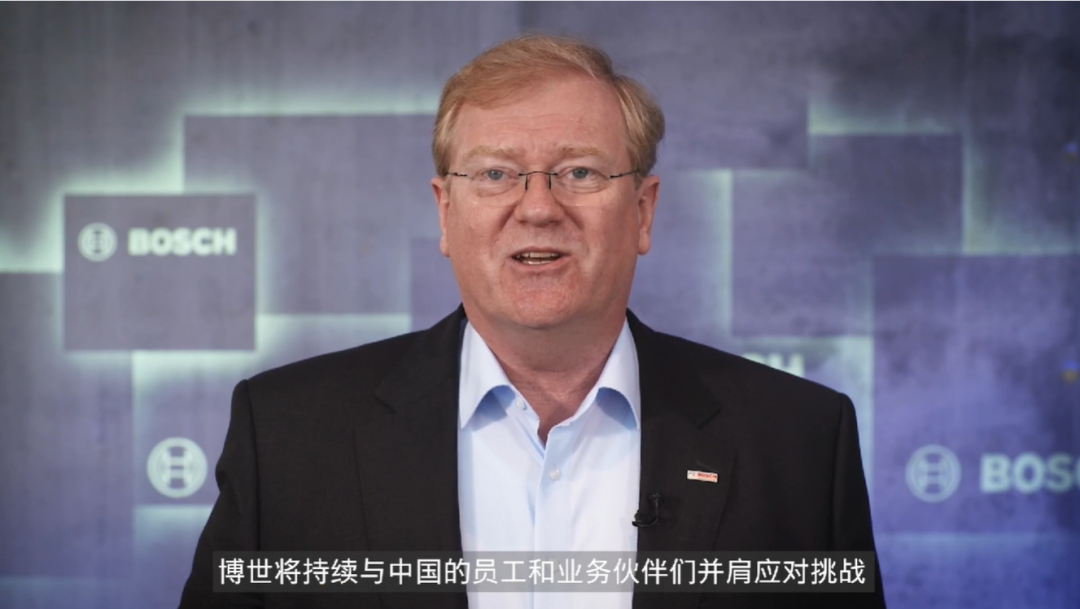Author: Michelin
In the past few months, it has not been easy for the domestic automobile industry in China. After experiencing the rapid rise in the penetration rate of electric cars in 2021, the chip shortage which troubled everyone did not ease in 2022. The price increase of raw materials and the recurrence of the pandemic followed. Epidemic prevention and production have become a difficult problem for car companies and suppliers, and the same goes for Bosch.
On May 10th, Bosch’s annual press conference for 2021 was held as scheduled. While the review of performance and prospects is a routine operation, a new theme of ensuring stable supply under the epidemic and the stability of the automobile industry chain is added to this press conference.
China’s local market, “Second Home”
If the “world factory” label was pinned on China’s manufacturing industry in the past, in the era of intelligent electric cars, the value of the Chinese market is no longer just a “world factory”, but a fiercely competitive main battlefield.
In the words of Stefan Hartung, Bosch’s new chairman of the board, the Chinese local market is the “second home,” not a manufacturing center that serves other regions globally. In China, R&D, production, and sales are all for meeting the needs of the Chinese local market.
In the past year, Bosch’s sales in China amounted to approximately RMB 128.6 billion (EUR 16.9 billion), a YoY growth of 9.6%. This is also a new high for sales in China. Bosch China’s sales accounted for 21.4% of the group’s sales in 2021. Among them, automobile business accounted for about 75% of Bosch China’s sales, reaching RMB 96.7 billion. Therefore, investing in localization strategy, continuous investment and strengthening local R&D capabilities are crucial.
In the past decade, Bosch has invested more than RMB 50 billion in the Chinese market. For example, the Bosch Intelligent Driving and Control Department established at the beginning of 2021 has integrated and established a Chinese team of over 1,200 members in less than a year and a half. The proportion of R&D personnel is nearly 88%. The past 2021 can be said to be the fierce competition for talents in the intelligent automobile field. The participation of new car-making forces and cross-border car-making has intensified the competition for talents in the intelligentization field of automobiles. Under this situation, the Chinese team of Bosch’s Intelligent Driving and Control Department has grown by 23% year-on-year, focusing particularly on two major technology fields: intelligent cockpit and assistance and automatic driving. For future investment, software and hydrogen energy are two important areas.
In this year, the continuous investment in such talents will continue. Bosch China will add more than 4,000 positions in 2022, providing a broad platform for innovation and global vision for local talents.
 # Bosche sees software and hydrogen energy as the most important in the localization strategy for the next few years.
# Bosche sees software and hydrogen energy as the most important in the localization strategy for the next few years.
Dr. Chen Yudong, President of Bosch Investment (China) Co., Ltd., thinks that in the investment of localization strategy in China for the next few years, software and hydrogen energy are the most important ones.
Bosch’s intelligent driving and control business unit is developing a full-stack intelligent driving system solution tailored for the Chinese market. The system adopts a scalable architecture design for future use, including the central computing platform, sensors, algorithm applications, and cloud services, which can achieve advanced driver assistance, autonomous driving, and automatic parking, and finally achieve mass production of autonomous driving.
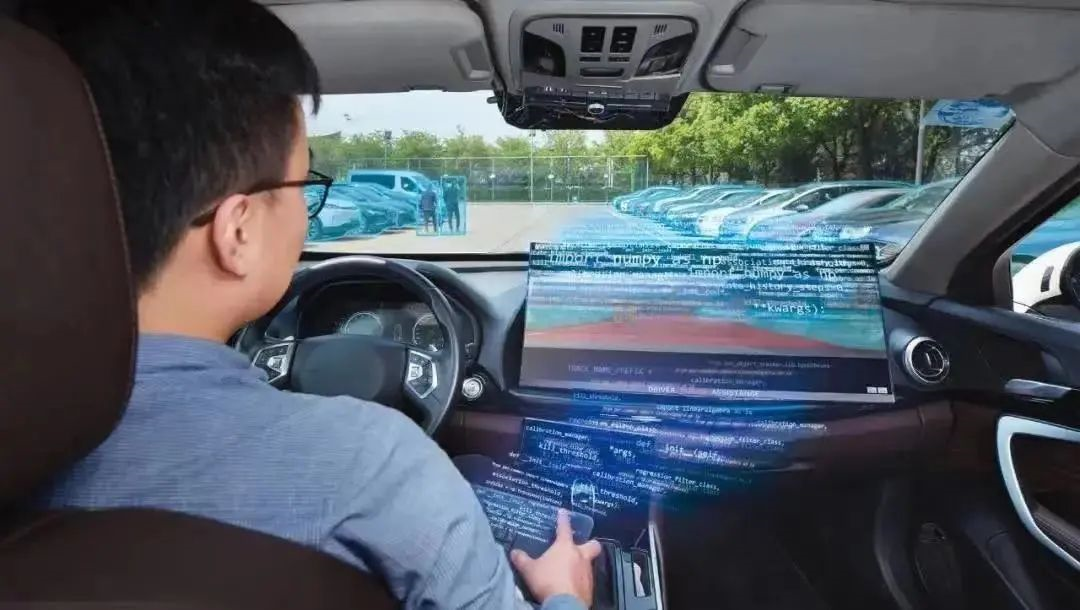
At the same time, Bosch began to layout the hydrogen energy industry early. In 2021, Bosch invested and cooperated with Qingling, Weifu, and Weichai to actively promote the development of localized market hydrogen power systems and stationary fuel cells. Now, Bosch has also entered the hydrogen energy production field and laid out the hydrogen electrolysis business.
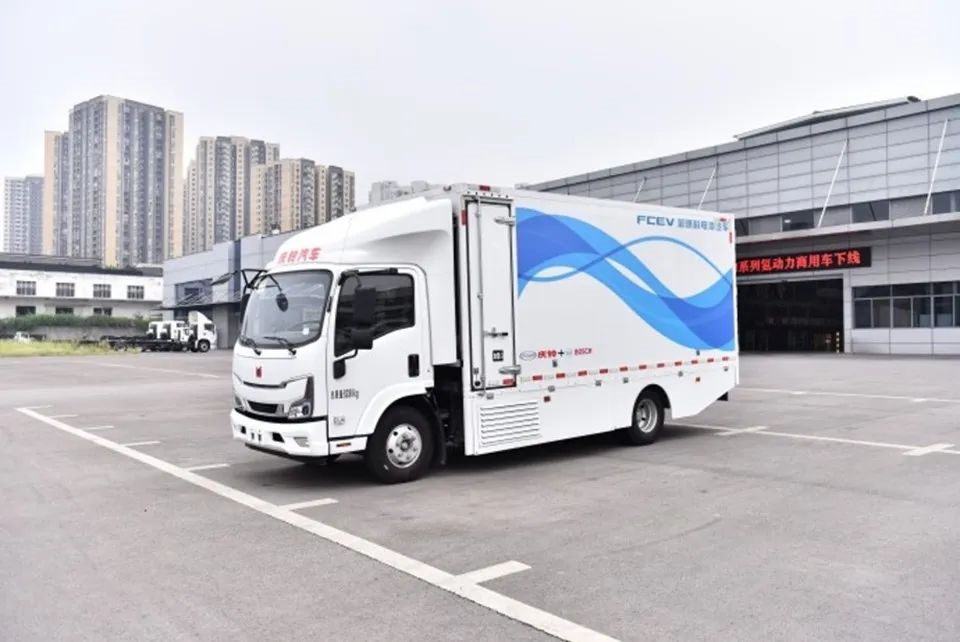
The automobile industry during the epidemic: It is still difficult to meet demand despite the effort to maintain supply
At the beginning of April, He XPeng tweeted, “If Shanghai and surrounding supply chain companies cannot find a way to resume work dynamically, all car manufacturers in China may have to stop production in May.”
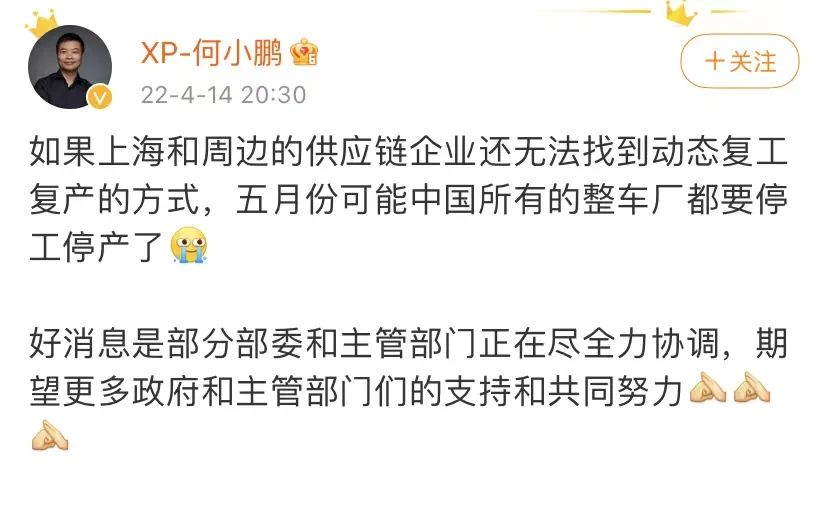
Now, automobile manufacturers and suppliers have resumed production one after another, but the next May is still a difficult time, not only for automobile manufacturers and the automotive supply chain but also for the long-standing problem of chip shortages.
The newly released delivery volume of new energy in April reflects the impact of the epidemic on the automotive industry vividly, and this impact will continue for some time to come.
“The auto industry is a very long value chain, and if it doesn’t form a ‘chain,’ it can’t produce products in the end.” Dr. Chen Yudong described the impact of the epidemic on the automotive industry. For a highly integrated product like a car, there are more lower-level suppliers under the OEMs and Tier 1 suppliers, and they rely on each other. If one of these suppliers on the fourth or fifth level stops working, it will cause the next process to be unable to proceed; a shortage of a chip worth ten yuan, amplified by the ECU to hundreds of yuan, will finally lead to a delay in delivery of a vehicle worth tens or even hundreds of thousands of yuan; all the factories are producing in a closed loop, but if the materials on the supply chain cannot be transported, the production can fail to reach a 100% output.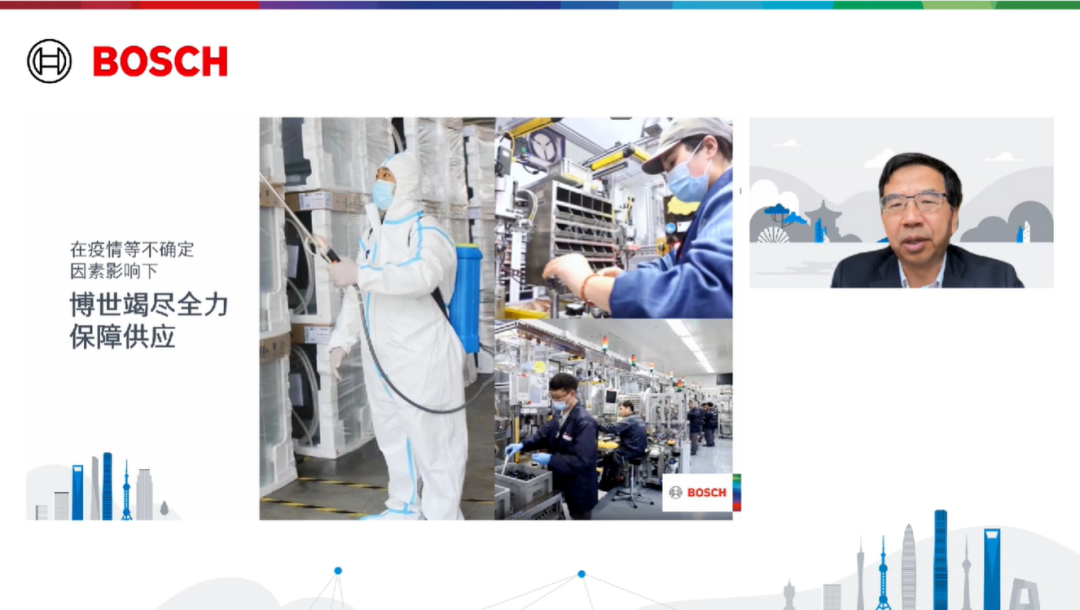
This is even more evident in Bosch. It is reported that Bosch has more than 40 direct suppliers and hundreds of indirect suppliers. Currently, more than 30 of the direct suppliers have resumed work, and the remaining direct suppliers are gradually resuming work. This makes Bosch now fully enclosed in production, but its production capacity is between 30% and 75%. It still takes some time to return to the level before the outbreak.
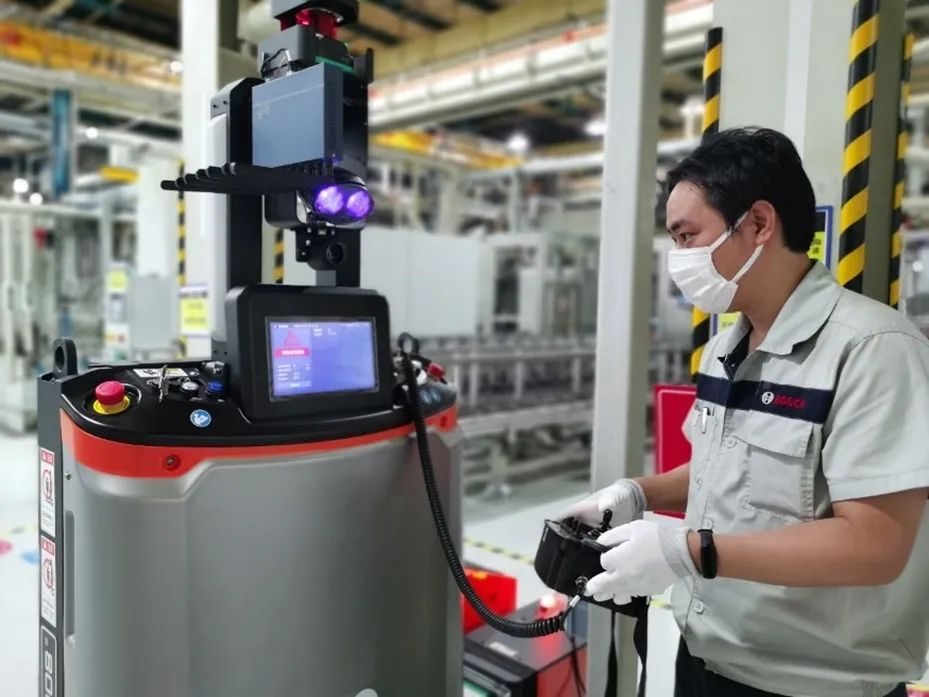
Another issue that also troubles the automotive industry is chip shortage. “When can the chip shortage be eased” is the most frequently asked question in the past year. Regarding the shortage of chips, Dr. Chen Yudong said: “I hope it can be alleviated in the second half of this year, and there will be fundamental improvement next year“.
In Bosch’s view, solving the problem of chip shortages requires expanding production capacity, such as expanding its own Dresden wafer factory to increase production capacity. On the other hand, we hope to transfer more semiconductor supply chains to China. The rise of domestic chip design companies and the creation of more local car-graded chip suppliers in the upstream of semiconductors are also solutions to the problem of chip shortages in the future.
After achieving carbon neutrality, still reduce carbon emissions by 15%
As early as April 2020, Bosch had achieved carbon neutrality in more than 400 business locations worldwide. But the goal of carbon emissions reduction is still ongoing. This time, Bosch proposed a target of reducing CO2 emissions in the entire value chain by 15% by 2030.
As mentioned earlier, the automotive industry has a long industrial chain, and carbon emissions at every link in this chain affect the low-carbon goal of the car’s entire life cycle. Precisely because of this, after achieving carbon neutrality, Bosch has started the goal of carbon reduction in the entire value chain.
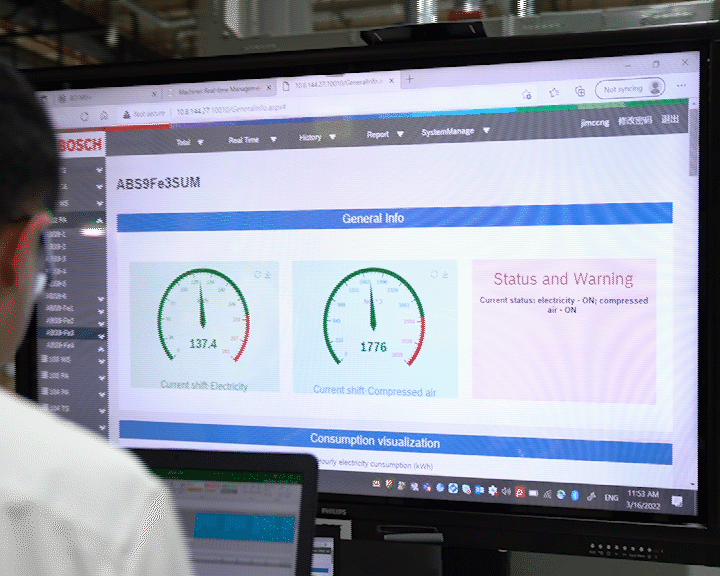 In addition to increasing investment in sustainable energy products and technologies and establishing green offices and factories, Bosch has issued sustainable development guidelines to its suppliers in China, promoting concrete actions for carbon neutrality in the supply chain from six dimensions, including carbon reduction training, carbon data disclosure, carbon target setting, carbon database establishment, supplier carbon maturity assessment, and sustainable development awards for best Asia-Pacific suppliers. Bosch has also invited 2,000 suppliers worldwide to join the CDP Carbon Disclosure Project, with around 350 Chinese suppliers joining in 2022. By sharing its carbon neutrality experience, Bosch is leading its supply chain partners to jointly reduce carbon emissions.
In addition to increasing investment in sustainable energy products and technologies and establishing green offices and factories, Bosch has issued sustainable development guidelines to its suppliers in China, promoting concrete actions for carbon neutrality in the supply chain from six dimensions, including carbon reduction training, carbon data disclosure, carbon target setting, carbon database establishment, supplier carbon maturity assessment, and sustainable development awards for best Asia-Pacific suppliers. Bosch has also invited 2,000 suppliers worldwide to join the CDP Carbon Disclosure Project, with around 350 Chinese suppliers joining in 2022. By sharing its carbon neutrality experience, Bosch is leading its supply chain partners to jointly reduce carbon emissions.
Final Remarks
The start of 2022 has not been smooth, with too many uncertainties over the past few months. However, for the automotive industry, the goals of electrification, intelligence, and sustainable development remain unchanged, and continuous investment in localizing in China is also unchanged.
Perhaps it is this persistence that will enable Bosch to tackle the challenges ahead more calmly and confidently, and achieve its 2022 goal of a 5% increase in overall vehicle sales.
This article is a translation by ChatGPT of a Chinese report from 42HOW. If you have any questions about it, please email bd@42how.com.
